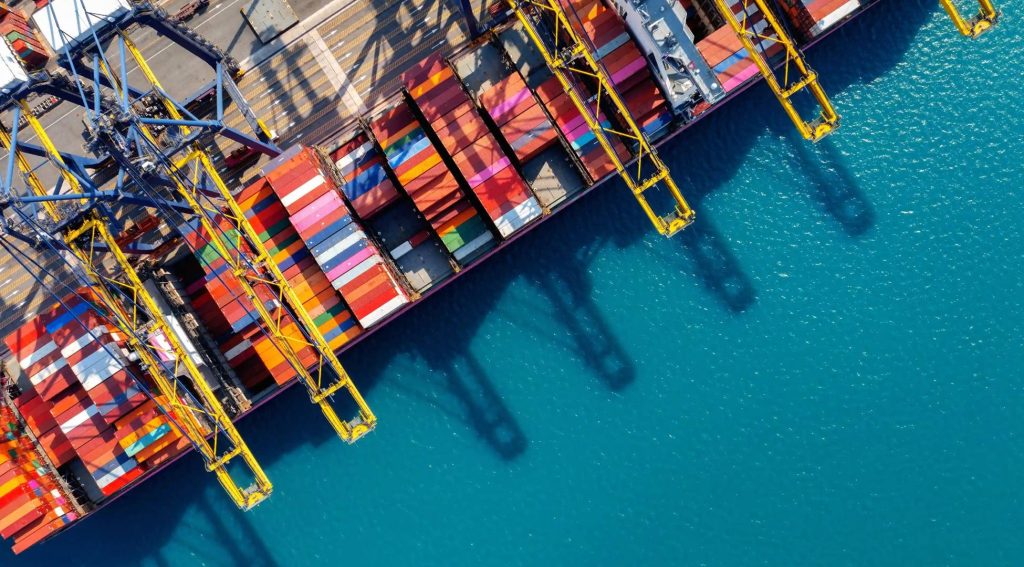While the global shipping industry celebrates a record low in total vessel losses in 2024, a new report from Allianz Commercial, the “Allianz Safety and Shipping Review 2025,” reveals that mounting geopolitical tensions are introducing significant new risks that could derail progress towards sustainable maritime transport.
The review highlights how challenges stemming from the US-China trade conflict, the proliferation of a shadow fleet, and ongoing instability in the Middle East are creating a complex and volatile operating environment for an industry already navigating the crucial energy transition.
The report underscores that the increasing reliance on a shadow fleet of older, often poorly maintained, and inadequately insured tankers poses a particularly grave threat to environmental sustainability.
These vessels, operating outside conventional regulatory oversight, significantly elevate the risk of major environmental catastrophes, such as large oil spills. The potential cleanup costs, reaching into the billions of dollars, would not only be an economic burden but also inflict devastating damage on fragile marine ecosystems, directly undermining global sustainability objectives.
The geopolitical conflict and impact:
The shipping industry is facing new risks and challenges due to the fast-changing geopolitical landscape, which includes attacks against shipping, vessel detentions, sanctions, and damage to critical subsea cables.
The ripple effect of increasing protectionism and tariffs threatens to remake supply chains and shake up established trade relations. With 90% of international trade transported across oceans, traditional risks such as fires, collisions, and groundings continue to drive total losses of large vessels.
For instance, the US-China trade conflict and growing shadow fleet pose uncertainty and challenges for the maritime and insurance industries.
The conflict has led to tariffs reaching 145%, impacting global maritime trade, with 18% of it subject to tariffs as of mid-April 2025.
The shadow fleet, comprising around 17% of the world tanker fleet, has grown significantly since the start of the Ukraine war. With around 600 tankers trading Russian oil alone, the shadow fleet poses a serious risk to maritime safety and the environment, as many are older, poorly maintained, and inadequately insured vessels.
The ongoing geopolitical volatility in the Middle East has led to ship operators rerouting vessels around the Cape of Good Hope, increasing costs and time for transits between Asia and Europe.
This has resulted in a two-thirds decrease in cargo volumes in the strait, costing the global economy around $200 billion that year. The quality and safety of vessels may also be impacted, as older and second-best tonnage may not be in the best state to operate safely on longer sea routes and in rough weather.
Challenges:
Large vessel fires remain a major concern for hull and cargo insurers, with seven total losses reported across all vessel types during 2024.
The shipping industry is becoming more resilient against risks associated with large vessels, but uncertainty and multiple risks persist.
Efforts to mitigate these risks are underway, with regulatory changes and technological advancements aimed at addressing misdeclared cargo.
The electrification of the global economy poses further challenges, given the growing number of lithium-ion batteries and battery energy storage systems being transported.
Despite the positive trend of only 27 total losses in 2024, uncertainty and multiple risks persist, including cyberattacks, GPS interferences, ceasefires, Red Sea security threats, and supply chain disruptions. The coming years will be decisive and will determine the path of the shipping industry and global trade.
Furthermore, the strategic rerouting of vessels around the Cape of Good Hope, a consequence of Middle East instability, presents a significant setback for the industry’s carbon reduction efforts.
While mitigating immediate geopolitical risks, these longer voyages translate directly into increased fuel consumption and, consequently, a larger carbon footprint for maritime transport. This shift also inadvertently extends the operational life of older vessels, which are often less fuel-efficient and have higher emissions, further complicating the drive for greener shipping practices.
The report also brings to light the persistent issue of fires on large vessels, frequently linked to misdeclared cargo. This concern is amplified by the growing volume of lithium-ion batteries being transported as the global economy electrifies.
Ensuring stringent safety and fire suppression measures for these new cargo types is not only a matter of operational safety but also crucial for preventing environmental incidents that could arise from uncontrolled fires.
The larger picture:
In essence, the Allianz Safety and Shipping Review 2025 paints a clear picture: the shipping industry’s journey towards a sustainable future is becoming increasingly complex.
The imperative for cleaner fuels and more sustainable shipping practices remains paramount, but the industry must now simultaneously navigate a turbulent geopolitical landscape.
While the report doesn’t offer specific solutions for sustainable transport in this context, it unequivocally emphasizes the critical need for the industry to integrate both traditional risk management and emerging geopolitical challenges into a comprehensive strategy that prioritizes environmental sustainability goals.
Thought leadership:
“There is little doubt the shipping industry is becoming more resilient against the risks associated with large vessels, although we can by no means say they are under control. However, only 27 total losses during 2024 underlines the positive trend. To put this into perspective, there are over 100,000 ships (100 GT+) in the global fleet. However, uncertainty and multiple risks persist. Cyberattacks and GPS interferences are increasing. Ceasefires have raised hopes, but the Red Sea security threat and supply chain disruption will likely remain. Meanwhile, the green transition requires much work. The coming years will be decisive and will determine the path of the sector and global trade,” says Captain Rahul Khanna, Global Head, Marine Risk Consulting, Allianz Commercial.
“Although recent sanctions are making it harder for these vessels to trade, the shadow fleet continues to pose a serious risk to maritime safety and the environment, as many are likely to be older vessels that are poorly maintained and inadequately insured. In case of an oil spill involving a shadow fleet tanker, cleanup costs could be as much as $1.6 billion,” says Justus Heinrich, Global Product Leader, Marine Hull, Allianz Commercial.













